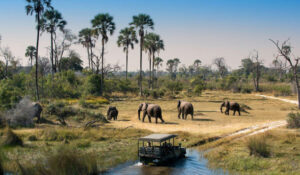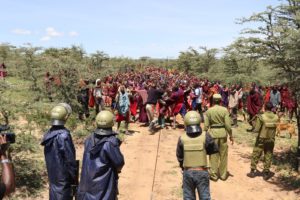by James L.Laizer
Tanzania tourism overtakes gold as top foreign exchange earner
Tanzania’s tourism sector has officially surpassed gold as the country’s leading foreign exchange earner, marking a historic milestone for the nation. Latest figures from the Bank of Tanzania and the Ministry of Natural Resources and Tourism show the industry generated $3.92 billion in the year ending May 2025, outpacing both gold and agriculture for the first time.
“This is a clear signal that tourism is no longer just a leisure sector, it is a strategic pillar for national development,” said Minister of Natural Resources and Tourism, Dr. Pindi Chana. “Our reforms, combined with Tanzania’s unique natural and cultural assets, have positioned the country as a top global destination.”
Tourism now contributes over 17% of Tanzania’s GDP and nearly 30% of Zanzibar’s economy, supporting more than 1.6 million jobs. Its resilience, particularly after the COVID-19 pandemic, has underscored its potential to reduce poverty and diversify income away from extractive industries like gold mining. Key reforms have helped unlock this growth. The Bank of Tanzania’s revision of foreign exchange regulations now allows tour operators to pay for services on behalf of international visitors and purchase specialized vehicles in foreign currency. Tanzania Association of Tour Operators (TATO) Chairperson, Mr. Mussa Makame, noted, “These exemptions remove significant operational bottlenecks and make Tanzanian tourism globally competitive.”
Tanzania’s natural assets remain the sector’s greatest draw. Mount Kilimanjaro, the Serengeti, and Zanzibar’s beaches continue to attract global attention. The country swept the 2024 World Travel Awards, winning Africa’s Leading Destination and World’s Leading Safari Destination. Private sector collaboration has been pivotal. TATO has championed sustainable tourism, promoted underexplored circuits, and implemented guidelines to protect the Mara River migration crossings. “Responsible tourism is essential,” said Makame. “We must balance growth with conservation to preserve Tanzania’s heritage for future generations.”
However, challenges remain, including infrastructure gaps, climate change, and over-tourism in key circuits. Yet with tourism revenues now exceeding gold, the country is better positioned to sustain reforms, strengthen partnerships, and deliver long-term economic and social benefits.
Zanzibar records historic tourism high
Zanzibar has reached a historic milestone, welcoming over 106,000 tourists in July 2025, the highest monthly figure ever recorded on the islands. This surge highlights Zanzibar’s growing reputation as a premier travel destination in the Indian Ocean, drawing visitors from Europe, the United States, and neighbouring African countries.
Improved flight connectivity, innovative travel packages, and the island’s unique blend of natural beauty, cultural heritage, and vibrant marine life have fuelled this boom. From the white-sand beaches of Nungwi and Kendwa to historic Stone Town and the fragrant spice farms, Zanzibar offers experiences that are both authentic and memorable.
The tourism boom is already stimulating the local economy. Hotels, resorts, restaurants, and tour operators report unprecedented demand, creating jobs and supporting small businesses. The Zanzibar Commission for Tourism notes that this surge aligns with government efforts to position the islands as a world-class destination while emphasizing sustainable practices. Authorities stress that growth must go hand in hand with environmental conservation, especially the protection of coastal ecosystems and historical sites.
The record-breaking numbers also reflect renewed confidence in Zanzibar’s tourism infrastructure, with improved facilities enhancing the visitor experience. Industry experts anticipate that momentum could continue in the coming months, reinforcing Zanzibar’s status as a top destination in East Africa.
For Zanzibaris, tourism is more than numbers, it represents livelihoods, community development, and resilience. Sustaining growth responsibly, investing in infrastructure, and conserving the islands’ unique natural and cultural assets will be key to maintaining Zanzibar’s success on the global tourism map.
Tanzania’s 2025/26 budget: what it means for climate action
Tanzania’s 2025/26 national budget, presented on June 12, 2025, by Finance Minister Dr. Mwigulu Nchemba, reflects a mix of ambition and challenges in tackling climate change. With a ceiling of TSh 56.5 trillion, the budget outlines how the government plans to support economic growth while strengthening resilience against floods, droughts, and other climate-related disasters. “Climate change is no longer a distant threat; it is affecting agriculture, health, energy, and livelihoods,” Dr. Nchemba emphasised. “Our budget must address these risks while supporting economic growth.” Yet, experts warn that allocations for climate adaptation, especially for vulnerable rural communities, remain insufficient.
Tanzania’s economy is highly climate-sensitive. Agriculture, livestock, fisheries, energy, transport, and health sectors all face rising risks from erratic rainfall and prolonged droughts. The natural resources, environment, and tourism sector received TSh 317.4 billion – well below the TSh 441.8 billion requested highlighting a continued reliance on external grants and loans.
The budget includes measures to promote cleaner energy. The government aims to expand Liquefied Natural Gas (LNG) for cooking, boost Compressed Natural Gas (CNG) in transport, and continue oil and gas development. Tax incentives on electric and gas-powered vehicles, VAT exemptions for cleaner fuels, and excise duties on coal and gas emissions are intended to encourage greener practices and reduce deforestation. Agriculture and water sectors received substantial allocations of TSh 1.93 trillion and TSh 898.1 billion respectively, focusing on irrigation, climate-resilient crops, and infrastructure projects such as the Simiyu Climate Resilience Project, supported by the Green Climate Fund and KfW.
However, gaps remain. Many initiatives focus more on mitigation and revenue generation than on strengthening resilience for those most exposed to climate shocks. Analysts stress the urgent need for domestic financing, through green bonds, private partnerships, and careful allocation of carbon revenues to complement international support.
In a world of shrinking aid and rising climate risks, Tanzania’s budget is both a step forward and a reminder: effective climate action must balance mitigation with adaptation, ensuring communities on the frontlines are not left behind.





